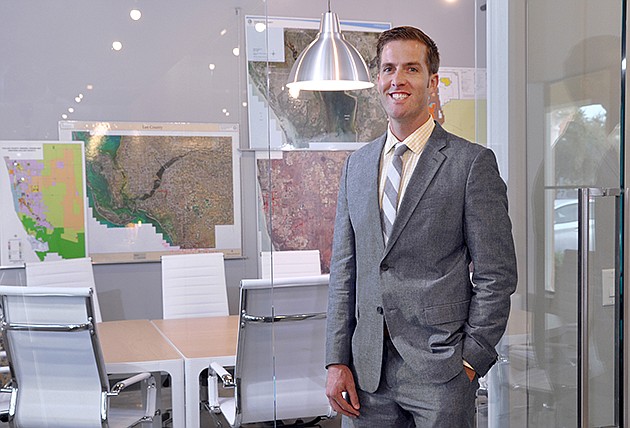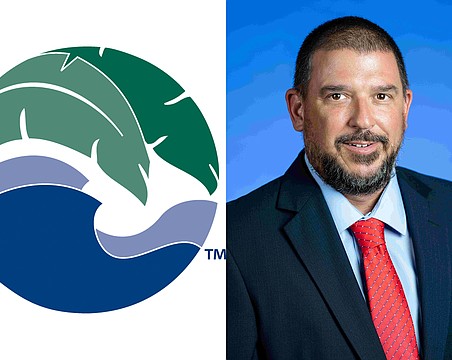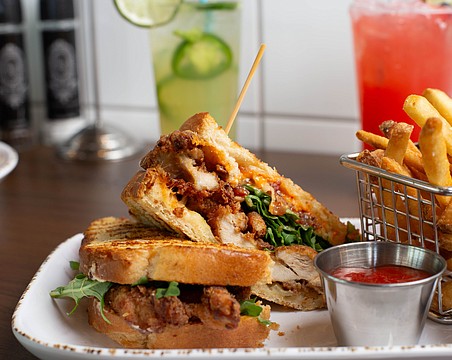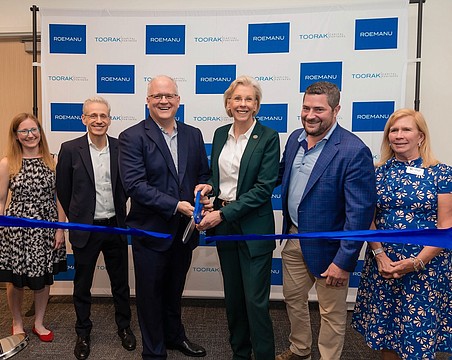DAN O'BERSKI
Managing Broker,
Trinity Commercial Group Inc.
Estero
Dan O'Berski formed Trinity Commercial Group in 2011, after more than a decade in the commercial real estate brokerage industry with companies such as CBRE Inc. and Naples Realty Services Inc. Although the firm has differentiated itself with expertise in retail sales and leasing, Trinity has of late expanded into the multifamily, office and land sectors. Last year, it completed 110 deals and increased its transactional volume by 50%. O'Berski, who has worked with tenants ranging from Wawa to Tijuana Flats, spoke recently to the Business Observer about trends in Southwest Florida retail and what the sector likely will experience in the year ahead.
Describe the retail marketplace in Southwest Florida at this point in the current cycle.
Retailers are continuing to expand, but they are being very particular about the locations they are choosing. They are conscious about co-tenancy and are preferring to go into proven markets rather than gamble on new ones. A lot of work that was done in the past two to three years is now coming to fruition here, resulting in openings by Chipotle, Starbucks, Wawa, Culver's and others. Large, major brands remain very active.
We expect in the first and second quarters of this year that retailers will be out again scouting sites. As such, we're feeling pressure from clients now to find locations. In some places, we're seeing a lot of density in restaurants, and existing restaurants are feeling the impact from new brands and competition, like at the Gulf Coast Town Center, in Fort Myers. As a result, some merchants are talking about built-out markets at the same time new retailers are coming in to the area. We're finding that there's ample capital chasing deals, while debt remains something that is not easy to obtain — and that's creating a more stable market. Banks are not lending much on a speculative basis for anything, so strong retail credit is being required for anyone to go vertical.
What trends are you seeing now that are different from previous cycles?
High-quality locations at high-quality intersections are becoming more valued than ever before. At the same time, we're rarely seeing more than 50% debt being applied to transactions for long-term holders of properties. Cap rates have become so compressed that it's hard for many to get positive leverage, and there's so much equity out there that there's not really a need for debt. I think, too, that you're seeing so much development of outparcels like Starbucks because there are so many centers already and because of the influence of online retail shopping. Owners are also looking for concepts to keep people on their properties longer.
In Texas, one landlord has installed a fountain designed like the one at the Bellagio Hotel in Las Vegas, because entertainment has become such a critical factor in retail development.
It's the same reason restaurants have always been attracted to centers with movie theaters, because if you can keep people at your property long enough, in theory eventually they have to eat.
We're also witnessing a change in demographics in the region toward younger people, who are more in tune to technology and who are willing to spend more to maintain their lifestyle.
Non-traditional retail growth, from Wawa to Starbucks, is dominating the landscape whereas past cycles focused on new center and mall development. What's driving that trend?
I think it really has to do with time, because people now look to trade their money for time, for the convenience of things. Starbucks and Wawa, for instance, have both figured out that people want convenience-oriented concepts, and they gravitate to ones that also offer a premium choice for the consumer.
Given Southwest Florida's predominant demographics, is online shopping having a significant impact on bricks-and-mortar retailers?
My parents are on Amazon now, so I'd say yes, it's having an impact. A comfort level with that shopping experience is growing. But what bricks-and-mortar merchants are doing is they're creating experiences — high touch, high emotion. That makes a much stronger tie with shoppers. When as a consumer you can engage in a friendly smile, a handshake or a conversation, it makes a big difference. Even online companies like Amazon are finding that the hub-and-spoke concept increases the connection between the buyer and the seller and fosters loyalty, too.
Should Southwest Florida retailers be concerned with the turbulence now occurring in China and oil markets worldwide?
I believe we're in a strong and healthy market, and what's been surprising to us is that even with the Fed's announcement regarding interest rate hikes, we're seeing market stability and even future commitments by tenants. Forward commitments are significant because they create the perception of stability, regardless of reality. I think we have a lot of opportunities through 2017.
Cash buyers seem to be prevalent this cycle. Is that the case for Southwest Florida retail properties as well?
Yes. We're seeing a tremendous amount of cash coming into the market, along with a wise use of debt among developers and investors. And, we're feeling very encouraged by the continued availability of equity. As I said earlier, many investors don't even need to turn to the debt markets.
What are you expecting for retail in the region in 2016?
I'm excited to see the new Aldi, Goodwill, Starbucks, Wawa, Culver's, Chipotle and other deals open in 2016 that were done in 2014 and 2015. At the same time, I think we're going to see stronger local tenants expand, so we're very optimistic about the future right now.






